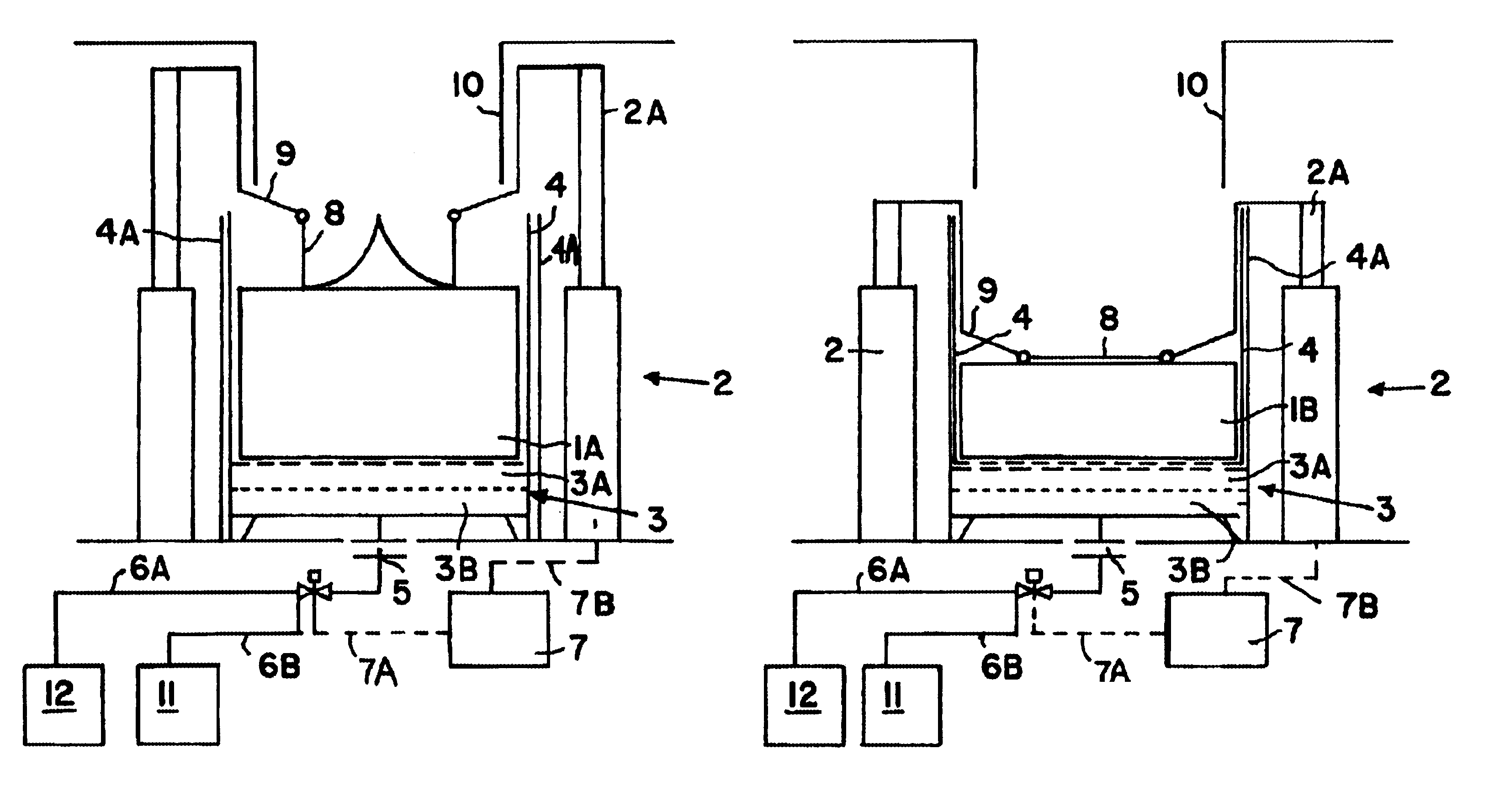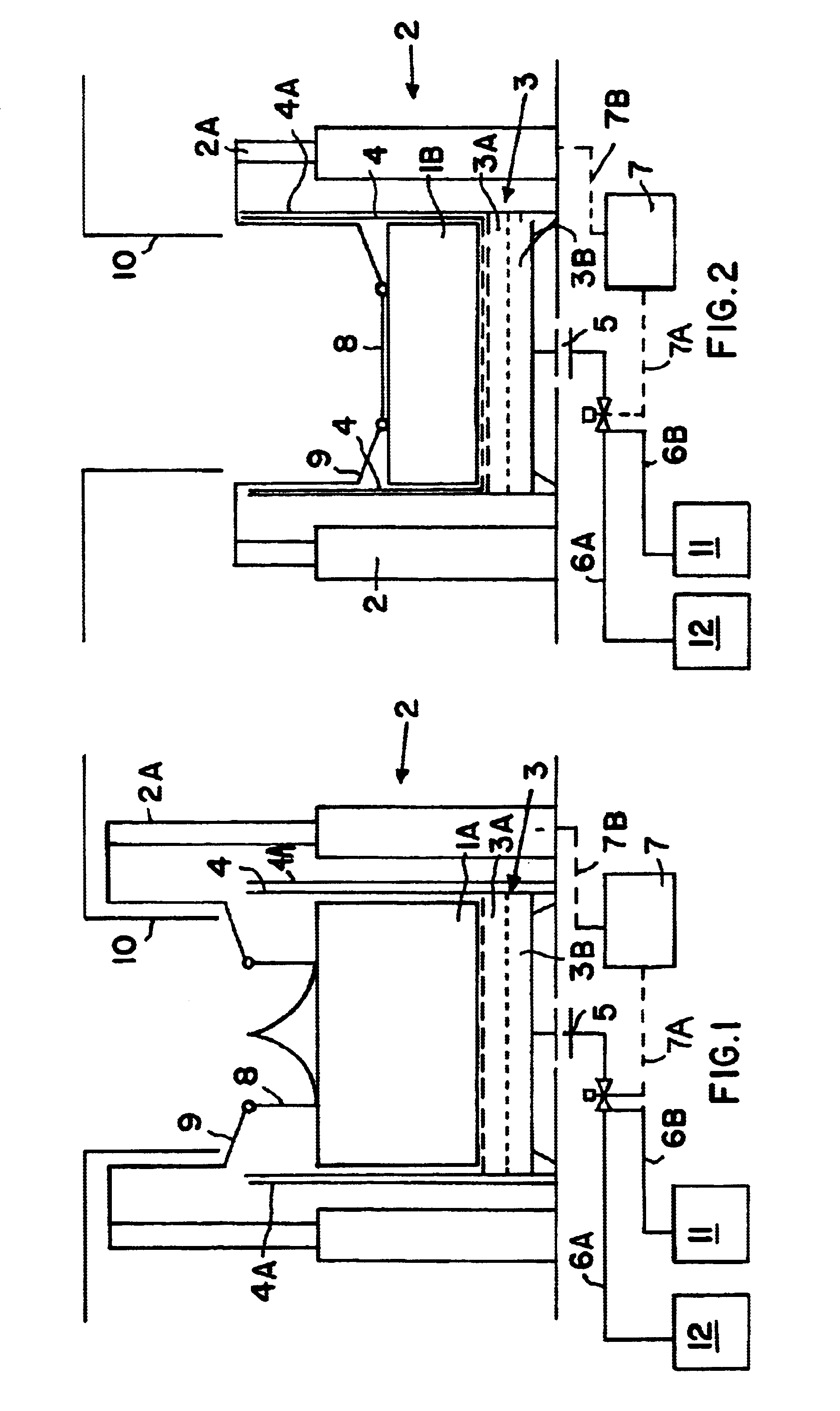Apparatus for compacting and draining mixed waste in passenger transport vehicles
a technology for passenger transportation vehicles and containers, which is applied in the direction of presses, press rams, manufacturing tools, etc., can solve the problems of messy disposal process, time-consuming, and inability to achieve a very thorough separation of liquids from solids
- Summary
- Abstract
- Description
- Claims
- Application Information
AI Technical Summary
Benefits of technology
Problems solved by technology
Method used
Image
Examples
Embodiment Construction
FIGS. 1 and 2 show a trash compactor apparatus 2 according to the invention, with a removable and replaceable or exchangeable trash receiving container 4 arranged therein. For example, the trash receiving container 4 can be slid into place from a side of the trash compactor apparatus 2, directly below a waste disposal shaft or chute 10, and supported by strong compaction chamber walls 4A. The container 4 serves to receive and accumulate the uncompacted or uncompressed waste materials 1A as shown in FIG. 1, and to hold the compressed and compacted waste materials 1B as shown in FIG. 2. In the uncompressed and uncompacted condition of the waste materials 1A, these include various mixed wastes in solid, pasty, and / or liquid form. In the compressed and compacted state of the waste materials 1B, most of the liquid components have been pressed out of the waste materials, and any void spaces (filled with air or other gases) have been mostly pressed out or compacted.
In order to remove the l...
PUM
 Login to View More
Login to View More Abstract
Description
Claims
Application Information
 Login to View More
Login to View More - R&D
- Intellectual Property
- Life Sciences
- Materials
- Tech Scout
- Unparalleled Data Quality
- Higher Quality Content
- 60% Fewer Hallucinations
Browse by: Latest US Patents, China's latest patents, Technical Efficacy Thesaurus, Application Domain, Technology Topic, Popular Technical Reports.
© 2025 PatSnap. All rights reserved.Legal|Privacy policy|Modern Slavery Act Transparency Statement|Sitemap|About US| Contact US: help@patsnap.com


